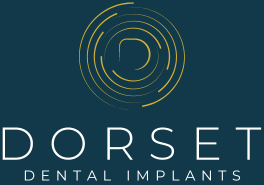Should You Bother Replacing Missing Teeth?
Implants | Bridges | Consequences | Same-day Teeth
Losing a tooth often causes numerous oral health problems like infection, decay and even further tooth loss.
The remaining teeth can shift and become wobbly due to possible damage to the bone’s vital structure. Bone does not grow back.
More consequences
Further consequences impact self-confidence, chewing and speech if the tooth has been lost at the front of the mouth. Back molar teeth loss has less impact.
However, where a tooth is lost, another tooth is isolated, with no other tooth next to it; this can weaken that tooth.
In time that tooth will also wobble and need to be removed.
What does our prosthodontist have to say?
We know implants are costly, and you have to weigh up your options; “Do I need to close the gap to restore function or will I be OK?”
Here are some of the problems that missing teeth can cause:
- Poor jaw function/Creating malocclusions
- Drifting teeth move into unoccupied spaces
- Bite alignment issues; teeth wear/jaw stress
- Jaw bone loss (up to a 25% reduction in the first year)
- Aged appearance and diminished chewing ability
Our advice? Always listen to what the dentist has to say. It’s their job to look after your oral condition.
Our tooth implant and missing teeth dentists can help advise on the healthiest option for the future strength of your oral health.
What can you do for missing teeth?
How to fix a missing tooth? What are your options?
Options for replacing a single tooth?
If you are missing one tooth, this can be easily replaced using dental implants (single implants), which are cheaper or using a dental bridge to bridge the gap literally.
Missing teeth replacement options:
- Implant-Supported Dentures
- Bridges for missing teeth (Maryland and cantilever)
- All on Four (teeth in a day for full arch rehabilitation)
- Multiple Implants
- Dentures (removable)
But what’s the best option?
Patients may think dentures may be their cheapest tooth replacement option, but when considering how often they need to be replaced and the discomfort they cause patients, some would argue implants are of better value.
If you have lost a back tooth (molar), you may be happy to continue with the gap as it might be hardly noticeable.
However, as you will read further down the page, this can cause problems in the future and lead to more expensive pre-implant procedures like sinus lifts or bone augmentations.
If you are experiencing missing front teeth, either from tooth extraction or trauma, this might knock on your confidence.
In this instance, the most natural-looking and functioning option would be a dental implant fitted with a long-lasting, natural porcelain crown.
Advantages of dental implants
- Long-lasting (can last more than 20 years)
- Strong, stable and the most secure, fixed option available
- Other teeth are not affected or involved with treatment, like bridges, so the remaining teeth stay intact
- Dental implants and the crown counterpart mimic natural teeth perfectly
Limitations of treatment
- A surgical procedure performed under local anaesthetic
- The replacement tooth will not be ready until the dental implant completely heals
- The priciest tooth replacement option
Dental implant costs
[ninja_tables id=”1553″]
See our table below for a full breakdown of costs, or view our implant fees here.
We offer various payment plans and finance over 12 months with 0% interest.
Tooth replacement on the NHS typically tends to be dentures – as dental implants are considered cosmetic enhancements they are not provided for free.
Unfortunately, losing teeth never makes the mouth healthier
So, whilst it may be possible for you to live with a missing tooth – this will not always be the case in the long run.
Missing teeth often cause gum disease.
When a tooth falls out, it will leave a wound in your gum tissue. Seeing as your mouth is a warm and wet spot, it’s the perfect breeding ground for all types of bacteria and developing some gum disease is highly likely.
Gum disease eats away at your gums, and whilst we can replace the bone loss in the jaw, we cannot regrow your gums.
Once your gums start to deplete and the jaw bone weakens, more teeth become stable and wobbly.
Severe cases, which can develop quite rapidly, often experience multiple tooth losses – the chances of this also increase when you smoke.
Call 01202 973300 for help.
Teeth will move and shift.
Open gaps in your mouth, when not replaced, will tend to move and shift. This is because there is no longer a tooth keeping everything in line.
Therefore, patients often experience crooked teeth, dark pockets forming, and new, unexplained gaps between teeth.
The problem with bone reduction
When a tooth is removed, it will cause significant changes to the surrounding bone structure.
The change will increase in proportion to the number of teeth lost.
Healthy bone is maintained by stimulating the existing teeth during everyday functions.
Bone resorption
The body has naturally occurring biofeedback mechanisms that tell it to keep that bone there as it is required to help the tooth cope with the stresses and strains of eating food.
If this stimulation were to be lost, as would be the case following an extraction, the bone is resorbed into the body due to the lack of activity.
This may result in the drifting of the adjacent teeth. If that were to occur, there would be potentially damaging bite changes, threatening the survival of the existing teeth.
Especially if those teeth have heavy fillings or are suffering from active gum disease themselves.
If several teeth are lost, there would be a dramatic reduction of healthy functioning bone tissue in the jaw.
As tooth loss and bone loss continue, it will cause significant changes in facial appearance.
This change, which dentists call a loss of vertical dimension, drastically accelerates the face’s ageing appearance.
How missing teeth affect your facial structure
Premature ageing will appear as wrinkling in the corners of the mouth, weakening the facial and biting muscles, and thinning the lips.
It is vitally important that should you lose a tooth or teeth; you consult your dentist early to discuss your treatment options so that these premature ageing effects won’t happen to you.
If a dental implant is placed into the bone, the body recognises that it must keep that bone there to help the implant deal with chewing forces effectively.
This is one of the biggest positives of having a dental implant. It helps maintain healthy functioning bone and gum tissue, which helps with chewing and is often the best option from an aesthetic point of view.
What next?
For more information, don’t hesitate to contact the practice to make an appointment or call 01202 973300.

